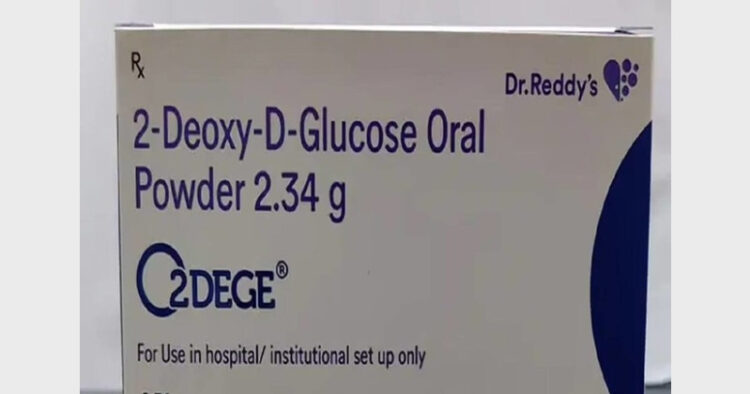New Delhi: IICT and Nosch labs entered an agreement for anti-COVID-19 drug2-DG.
Indian Institute of Chemical Technology (IICT), Hyderabad, a constituent laboratory of Council of Scientific and Industrial Research (CSIR), New Delhi, and Nosch Labs entered a non-exclusive agreement for transferring the process knowhow for the synthesis of anti-Covid-19 drug 2-DG (2-Deoxy -D -Glucose).
2-DG has been developed by the Institute of Nuclear Medicine and Allied Sciences (INMAS), New Delhi, a lab of the Defence Research and Development Organisation (DRDO), in collaboration with Hyderabad-based pharma company Dr. Reddy’s Laboratories (DRL).
Nosch Labs will begin manufacturing 2-DG drugs after obtaining regulatory clearances from the Drugs Controller General of India (DCGI). The company intends to make the drug available at an affordable price.
“The institute has helped to address numerous societal challenges and providing innovative solutions to Indian industries in the area of drugs and pharmaceuticals, agrochemicals, lipids, catalysis, functional materials, environmental, analytical, biological and, engineering sciences. The institute has also undertaken clinical trials of various drugs repurposed to treat people infected with COVID-19”, said Dr. Srivari Chandrasekhar, Director CSIR-IICT.
CSIR-IICT, with its expertise in chemistry and chemical technology, provides solutions to challenges faced by the industry, government departments, and entrepreneurs through basic and applied research and process development. It is renowned for its contributions to chemical research. It is regarded as an ideal location for bringing ideas to market through state of art research and development.
Nosch Labs Pvt. Ltd, with headquarters in Hyderabad, has four manufacturing facilities in Telangana. The company has international regulatory accreditation such as EU GMP, Korea GMP, and Russian GMP certifications, with annual revenue of Rs 500 crores. The company manufactures anti-ulcer, anti-fungal, antidepressant, APIs, semi-finished and finished formulations. According to a CSIR-IICT statement, it exports to more than 40 nations, including Europe, South America, Russia, China, and Korea.
(India Science Wire)














Comments